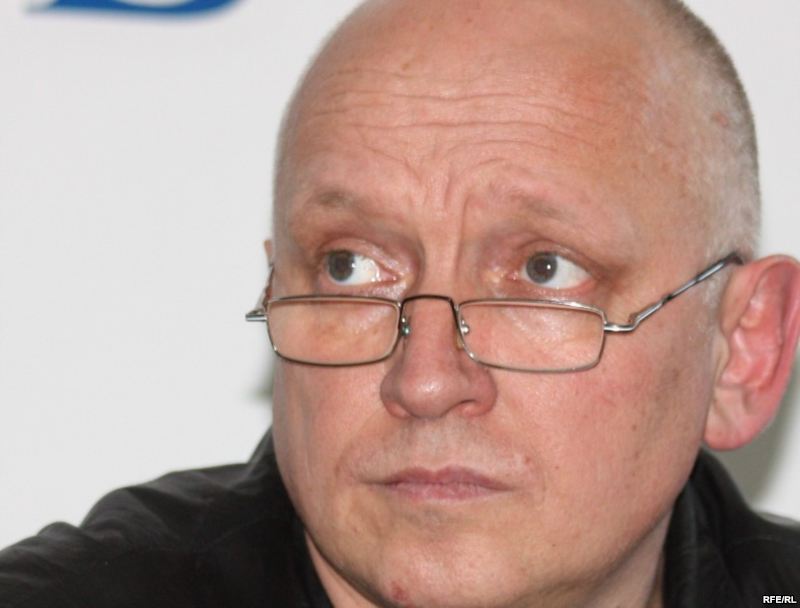
Trial of Vladimir Kozlov Starts in Aktau, Kazakhstan
Publication: Eurasia Daily Monitor Volume: 9 Issue: 158
By:

The trial of three Kazakh political opposition leaders for the Zhanaozen events is widely viewed as a test for Kazakhstan’s judicial system and democratic development. The trial of Vladimir Kozlov, leader of the unregistered opposition party Alga! (Forward), Serik Sapargaly, a politician and activist of Khalyk Maydany (People’s Front), and Akzhanat Aminov, trade union leader and activist during the strike at OzenMunaiGaz in Zhanaozen, started in Aktau on August 16. The criminal charges brought against the defendants are based mainly on their political activities, which the authorities believe incited the violent riots in the western oil city last December. In January, the Prosecutor General’s Office alleged that the main reason behind the riots was the actions of individuals who urged laid-off workers to continue protests and confront the government (zakon.kz, January 25).
Vladimir Kozlov and Akzhanat Aminov were charged with inciting public discord (Article 164, part 3 of the Criminal Code); calling for the violent overthrow of the constitutional order (Article 170, part 2); and establishing and leading an organized criminal group (Article 235, part 1). Sapargaly was charged under Articles 164, part 3 and 170, part 2 (BNews.kz, August 16).
Kozlov and Spargali were arrested in Almaty in January and transferred to a pre-trial detention facility in Aktau in May. Aminov was detained in February in Zhanaozen. If convicted, they face prison sentences of up to 12 years. Kozlov and Aminov may be imprisoned for up to 19 years as they are also charged under Article 235.
On the first day of the trial, Kozlov denied all charges, but Aminov pleaded guilty and Sapargaly admitted some responsibility for the Zhanaozen events.
The prosecutors will have to prove a direct connection between the defendants’ actions and the riots that goes beyond the defendants’ political convictions. If the trial is not fair and the due process is flawed, the process could be viewed as a public crackdown on the political opposition and result in serious friction between Kazakhstan and its Western partners. US Assistant Secretary of State Robert Blake, speaking in Almaty, has already asserted that Washington will closely follow the court proceedings. Stressing that Kazakhstan has particular responsibility to demonstrate reforms it pledged as chair of the Organization for Security and Cooperation in Europe in 2010, he expressed hope that the trial will be fair and not result in a retreat from democratic principles (Aktau Lada, August 16).
Alga! party members have said that the trial is an attempt by President Nursultan Nazarbayev’s government to eliminate the political opposition. Human rights defender Bakhyt Tumenova told TV Rain that all trials on Zhanaozen have a demonstrative character. “The sentence of Kozlov will be very harsh, not less than ten years imprisonment, because the authorities would like to send a message that no one should dare revolt again,” Tumenova said (TVrain.ru, August 16).
The local press is not silent about the political nature of the charges. The Aktau-based newspaper Lada reprinted on August 17 a piece by Deutsche Welle Russian language service entitled “The trial of Kozlov – the first political trial in Kazakhstan.” The publication says that the trial in Aktau will have a special place in Kazakhstan’s history, because for the first time representatives of the political opposition are tried on political charges (Aktau Lada, August 17; Deutsche Welle, August 16).
In reality, the reason for the high-profile trial of opposition leaders is not the threat they may present to President Nursultan Nazarbayev. Alga! party and the People’s Front benefit from little popular support, and the opposition is generally weak, fragmented and disorganized. The official investigation has concluded that a “third party” from outside Kazakhstan manipulated opposition activists and their organizations to stir trouble in Zhanaozen. The authorities claim to have proof that fugitive banker and former government minister Mukhtar Ablyazov has provided financial support to the opposition using billions of dollars in stolen money to destabilize the country (nomad.su, August 5).
Ablyazov, who fled Kazakhstan in 2009 and received political asylum in the United Kingdom, has subsequently evaded a prison sentence for contempt of court issued by the UK High Court in February 2012 (EDM, February 27). Ablyazov and his associate Muratbek Ketebaev, a member of the Alga! party coordination committee, have also been charged under Article 235 with “creating and leading an organized group with the aim of committing one or more crimes.” The prosecutors say that Kozlov and Sapargaly worked under orders from Ablyazov and Ketebayev to locate weak spots in the country and exploit public grievances for political purposes. The two defendants deny the accusation.
The 1,300 pages of documents presented to Aktau criminal court contain an extended record of political speeches, statements, and writings of the defendants going back ten years. These files may prove that Kozlov, Sapargaly, and Aminov are opponents of the government and have expressed their opinion using their right to free speech. But in order to prove a connection between their political activities and the violent riots, the prosecutors will need to present convincing material evidence such as money transfer documents, video and audio recordings in which plans for violence are discussed, as well as written proclamations inciting violence. Otherwise, the trial would be considered a political clampdown on the opposition and could resonate negatively on the government with the Kazakhstani public and the international community.




